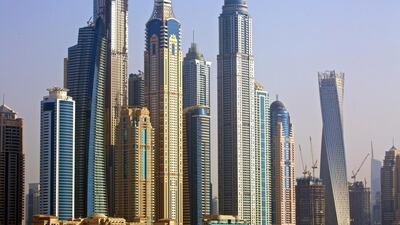Qannas Investments, the Abu Dhabi-owned investment company whose shares are listed on the London stock exchange, has said that it plans to return cash to shareholders by buying back about US$8 million (Dh29.3m) worth of its own shares.
The company has issued a tender offer to buy back almost 8.9 million shares, which represents about 12.9 per cent of its total capital.
Qannas Investments said that following discussions with some of its shareholders, it was aware “that at this time a return of capital is preferable to any new or further investments by the company”, and since does not have enough distributable profits to pay dividends, it will offer to buy out shareholders from its own capital base.
Qannas Investments is largely owned by Abu Dhabi Financial Group. The company floated on the London Stock Exchange in 2012 and has since made a number of investments in private equity, debt and real estate projects in the Middle East, Eastern Europe and central London.
These include stakes in the GCC equities fund Goldilocks, a hotel and a Hard Rock Café in the Montengrin capital, Podgorica, and a pair of penthouses in the delayed Marina 101 tower in Dubai Marina.
Almost half (46 per cent) of its capital is invested in the UAE, 18 per cent is in Eastern Europe and 7 per cent is in Saudi Arabia. The biggest chunk (38 per cent) of its capital is invested in financial services, 17 per cent is in hospitality, and 11 per cent is in oil & gas.
The company published its results for 2016 last month which showed that its net asset value (NAV) declined by $5.1 million to $64.7m in 2016, which it said was due to writedowns in the carrying value of certain private equity investments. However, an investment manager’s report on its website shows that NAV recovered to $68.8m by the end of March.
In its statement announcing its buyback, Qannas Investments said that both its board and its investment manager, Abu Dhabi Capital Management, had decided that under its current strategy, “the diverse nature of the company's portfolio is not currently attractive to institutional investors and investors outside of the GCC countries” and is holding back its growth plans.
Therefore, it is planning to sell off all of its investments over time and use the proceeds to pay back debt and distribute the surplus to shareholders.
It will propose to shareholders at a forthcoming annual meeting that sell-offs will be “in an orderly fashion over the next one to two years, pending a decision on a new investment strategy.”


